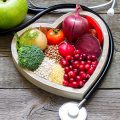
COVID-19 pandemic highlights importance of maintaining healthy routines
FAMILY FEATURES
After a heart attack or stroke, as many as 1 in 4 survivors will have another one. However, lifestyle changes and working closely with your doctor to manage your health may minimize the risk of a repeat event. Sticking to secondary prevention routines -– by eating healthy, being active and taking medications as prescribed -– is important as cases of COVID-19 increase.
“A heart attack or stroke is a very scary experience, and people try to avoid revisiting that difficult time,” said neurologist Lee Schwamm, MD, chair of the American Stroke Association and professor of neurology at Harvard Medical School “Unfortunately, the risk of a repeat stroke is high, and lifestyle changes to reduce a person’s risk are almost always necessary to reduce those odds.”
Up to 80% of second clot-related strokes and heart attacks may be prevented by making healthy choices. Consider these tips from the American Stroke Association’s secondary heart attack and stroke prevention initiative, sponsored nationally by Bayer.
Blood Pressure: Work with your doctor to ensure you’re maintaining a healthy blood pressure level below 130/80. High blood pressure is both a leading cause and major risk factor for stroke and heart attack.
Cholesterol: Medication and healthy lifestyle habits can help keep high cholesterol in check.
Blood Sugar: Having diabetes, which is caused by high blood sugar, more than doubles your risk of stroke. Some people have diabetes and don’t know it until a medical emergency happens.
Medications: If you are prescribed medications for high blood pressure, high cholesterol or diabetes, make sure you take them as prescribed. If you had a clot-related stroke or a heart attack, your doctor may recommend aspirin to help prevent another event. Aspirin is not appropriate for everyone, so talk to your doctor before beginning an aspirin regimen.
Smoking: If you smoke, stop. Smoking increases the risk of stroke and heart attack because it damages blood vessels, which can lead to blockages.
Physical Activity: Being physically active at least 30 minutes a day, most days of the week or 150 minutes per week is recommended by the American Stroke Association.
Even as COVID-19 cases strain emergency medicine, calling 9-1-1 still provides access to life-saving treatments for people experiencing medical emergencies like heart attacks or strokes. Emergency medical responders can assess symptoms, begin treatment and transport the patient to the most appropriate hospital, if necessary.
Based on current information from the Centers for Disease Control and Prevention, it appears people 65 and older and people of any age with underlying medical conditions, such as heart disease, high blood pressure and diabetes, are more likely to be infected and develop more severe symptoms. Stroke survivors may face increased risk for complications if they get COVID-19.
Find more resources to help manage your risk at stroke.org/oneisenough.
Know the Warning Signs for Strokes and Heart Attacks
Even as COVID-19 cases strain emergency medicine, experts say calling 911 is still the best way to access life-saving treatments for people who are experiencing heart attack or stroke symptoms.
Heart attacks and strokes are medical emergencies. If someone is experiencing stroke or heart attack symptoms, he or she should call 911. Emergency medical responders can assess symptoms, begin treatment in the ambulance and transport the patient to the most appropriate hospital, if necessary.
Hospitals have plans in place to keep potentially contagious patients away from others and keep surfaces clean. Calling 911 and activating Emergency Medical Services (EMS) ensures you have the best possible chance to beat a heart attack or stroke. EMS can begin treatment in the ambulance and take you to the hospital best suited to care for you in an emergency.
Stroke warning signs can be remembered using the acronym F.A.S.T.:
• F – Face drooping
• A – Arm weakness
• S – Speech difficulty
• T – Time to call 911
Heart attack warning signs include:
• Chest discomfort.
• Discomfort in other areas of the upper body such as one or both arms, the back, neck, jaw or stomach.
• Shortness of breath.
• Breaking out in a cold sweat
• Nausea
• Lightheadedness
Photo courtesy of Getty Images

















Leave a Comment